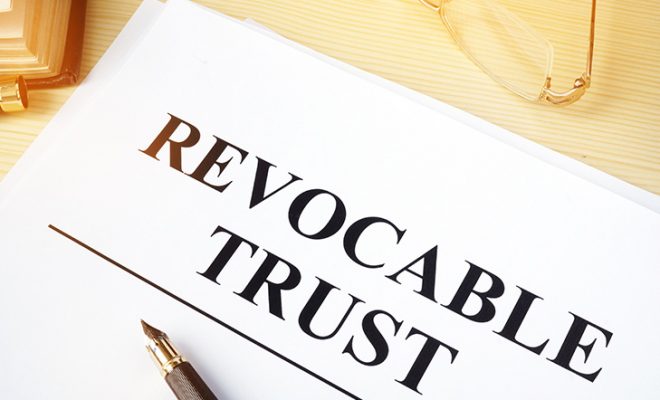Help Your Heirs Avoid Heavy Taxes by Creating an Effective Estate Plan

Estate planning is not only for the rich or the old. It is for anyone who owns any assets and other valuable items. The main objective of estate planning is to ensure that your hard-earned money, assets, properties, etc., are transferred to your heirs without any hassle and with minimum tax implications. Improper planning or the absence of an estate plan can attract hefty tax liabilities and also create several legal complications. For 2020, the U.S. federal estate law levies taxes on estates valued above $11.58 million. So, if your estate is worth more than the specified limit, you should have an estate plan in place. Moreover, even if your estate is valued for less than this, it is still advisable to create an effective estate plan to avoid any legal complications in the future for your heirs. Also, your heirs could be subject to inheritance tax.
Here are some methods that you can use to help your heirs avoid heavy taxes by creating an effective estate plan:
Give gifts
One effective method that can help to reduce your estate tax liability is to give some portions of your wealth to your family members in the form of gifts. However, you have to first prepare yourself to be able to distribute your wealth while you are alive. If you do not have enough savings for your lifetime, it is not advisable to opt for this method to reduce estate taxes. But, if you have sufficient funds and you are comfortable with parting with some of your wealth when alive, you can reduce the tax burden from your heirs later on. As of 2020, you can only give $15,000 away in gifts annually without affecting the estate exemption. So, in all, the threshold you can give away is $11.58 million as gifts, for your heirs to be below the estate tax limit. Since there is no limitation on the number of people you can give gifts to, so you can easily distribute them amongst your beneficiaries as you deem fit. But the gift can be taxable to the giver, in form 709.
Make a life insurance trust
The objective of estate planning is to distribute your wealth as per your desires. In addition to this, estate planning aims to ensure that your family does not face a financial crunch in your absence. For this purpose, you can easily provide financial security for them by investing in a life insurance policy. However, even though the proceeds from the insurance plan are not taxable, they do come under tax purview after your demise. Hence, your children would have to pay estate tax on the lump sum. That said, it is possible to avoid this by creating an irrevocable life insurance trust (ILIT). In an ILIT, the creator or the grantor, which is you, cannot amend the terms and related aspects once it is set-up. The only people who can alter anything in the trust are the named beneficiaries. This will function like a trust, where you would transfer the ownership of assets included in the trust to another person. Thus, reducing the estate tax burden on your children. If your life insurance policy is a part of the irrevocable trust, the death benefits will be covered in the estate. It is advisable to create this trust as soon as possible because if you pass away within three years of setting this trust, the proceeds from the insurance policy would still be a taxable estate item.
Opt for charities
Charities are also a method to minimize the burden of estate taxes on your children in the future. You could transfer some of your wealth to charitable institutions through a trust. There are typically two types of charitable trusts, namely charitable lead trusts (CLTs) and charitable remainder trusts (CRTs). In the case of the former, the assets you include in the trust will be given to a tax-exempt charity, which will lower the estate value and also provide your tax exemptions. Additionally, after your demise or post expiry of a defined tenure, the asset value of the trust is passed on to the beneficiaries. Alternatively, in the case of CRTs, you can create an irrevocable trust where you transfer a stock or an asset that is appreciating. When you are alive, you can take the earnings from the asset or the investment. However, in your absence, the income from the investment is donated to a charity. This will enable you to lower your capital gain taxes, earn tax exemption in the future, as well as reduce the estate tax burden.
Create a family limited partnership
Family limited partnerships offer estate and gift tax advantages. You can also use this method to pass on your wealth to your children while securing tax protections. Each year, you can gift the interest earned from this family limited partnership to your children without paying any taxes, up to the gift tax exclusion limits. As of 2020, the annual gift tax exclusion limit is $15,000 for individuals and $30,000 for married couples. For example, you have $5million in estate value and two children, and four grandchildren. You and your spouse decide to create a family limited partnership and hence, transfer $30,000 interest income from the partnership to each of your children every year without paying any taxes. This implies that you can give $180,000 worth of interest income each year if the gift exclusion limits remain constant. This will reduce the worth of your estate and ultimately, create less tax liability for your children in the future.
Form a Qualified Personal Residence Trust (QPRT)
Another type of irrevocable trust, which can help you lower estate taxes is QPRT. By creating a QPRT you can hold your residence (primary or secondary) and live in it for a specific period, post which, you will transfer the ownership of the house to your beneficiary. By creating this trust, you can remove the value of your house from the total estate worth and ultimately decrease the gift-tax and estate tax. However, any value that the property acquires in this specific time will not be included for tax purposes. You will pay estate taxes only for the amount as on the day you set up the trust.
Move to a new state
This might seem like an extreme option, but it can help those who have high estate values. By opting to live in a state that levies no estate or inheritance tax, you can save thousands of dollars and preserve the wealth in the family. Some of the U.S. states that charge estate taxes include Connecticut, Rhode Island, Hawaii, Kentucky, Massachusetts, New Jersey, Nebraska, New York, Minnesota, Vermont, and Washington.
To sum it up
Apart from these methods, you can also create a foundational estate plan, invest in a private annuity, make uniform transfers to minors, etc., to lessen the estate taxes payable by your heirs. However, each of the tax-saving approaches has its pros and cons. It is critical that you understand each type in detail and then choose an effective strategy to lower the estate and inheritance taxes. You can also get in touch with professional financial advisors, who would be able to better guide you on how to apply an estate tax saving tactic to the best of your advantage.








